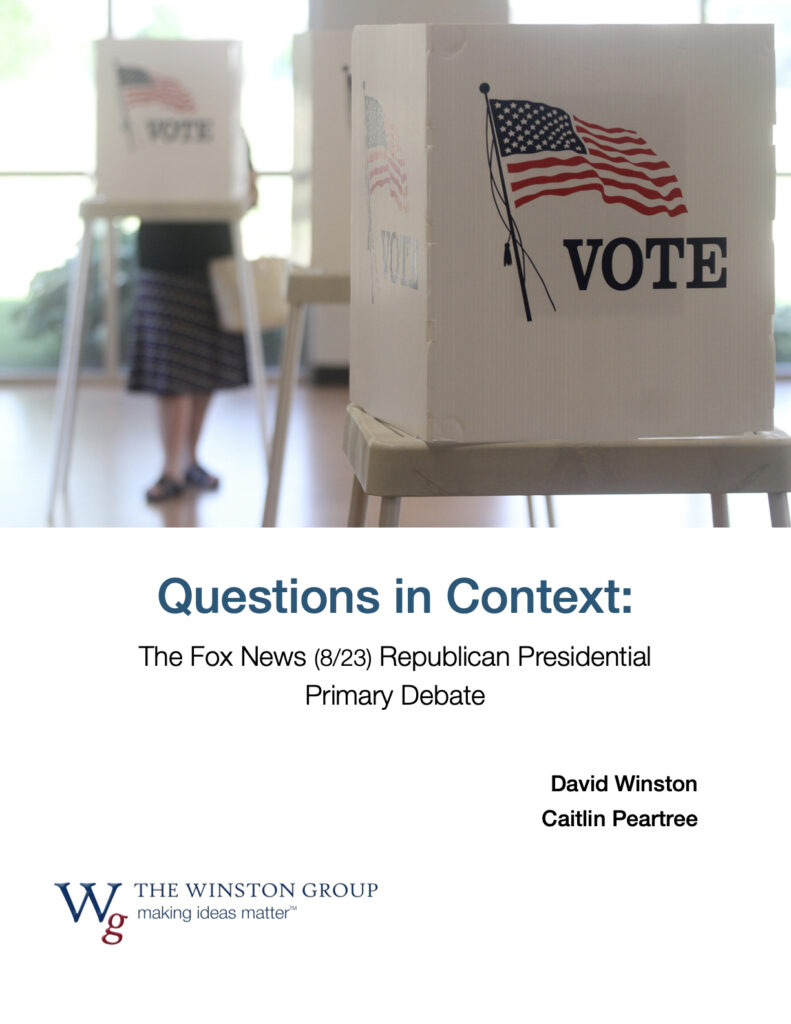The 2024 presidential race will be a Biden-Trump rematch, but compared to today’s sour political climate, the 2020 election was a very different time for the country. We were still in the throes of COVID. The economy was central to the election, but the country was still trying to defeat the virus as closures continued and a vaccine wasn’t yet available. Combined with the protests during the summer, the stage was set for a more unifying positive candidate. Biden’s positive brand image (52-46 fav-unfav) made it easier for voters who didn’t like Trump (46-52 fav-unfav) to vote for him. Exit polls showed the economy was the strong suit for Trump, while Biden won among voters who prioritized the virus. Disruptive change wasn’t the priority it had been in 2016.
The contours of the 2024 election appear much closer to 2016 than 2020. In 2016, the country and economy were seen as on the wrong track. Both party nominees had high negatives, but Clinton had the attributes of the political old guard. Exit polls showed that the most important candidate quality in a choice of four was can bring needed change (39%) over other presidential attributes like has the right experience (22%), has good judgment (20%) and cares about people like me (15%). Among voters who identified can bring needed change as their most important candidate quality, Trump won decisively 82-14.
With the negative outlook on the country and economy similar to 2016, voters are looking for change again. In our survey for Winning the Issues (February 24-25), we tested a series of candidate attributes and asked voters whether they applied more to Biden or Trump. On the attribute of can bring needed change, neither Biden nor Trump reached 50%, but Trump had a significant lead over Biden on this attribute (48-33).

Among voters who think the country is headed on the wrong track (67% of the electorate), they see Trump as the candidate of change 60-19. Trump voters view their candidate as the change agent by an overwhelming 93-1, with Republicans at a similar margin of 88-4. In contrast, only 65% of Democrats and 70% of Biden voters see their party’s nominee as the change candidate, with about 1 in 4 Democrats (24%) being undecided. Additionally, the numbers for Biden are very weak among a key part of the Democratic coalition — African-Americans — with only 40% identifying Biden as the change candidate (31-40) and 29% that do not know.
Among important swing groups, independents see Trump as the candidate of change by almost 2:1 (45-26), although Trump’s lead does not reach 50%. With independents being a group that Biden won by 13 in 2020, this result should concern the Biden team. Among young women 18-44, who the Biden campaign intends to target with an abortion message, only 31% say Biden is the candidate to bring needed change (39-31, 29% don’t know). The same trend is seen among millennial/Gen Z voters (43-33, 24% don’t know).
These numbers don’t represent vote intention, only perceptions on this attribute. But these results indicate a lukewarm view from the President’s own party about his ability to be the change agent the country needs. Given the second-term legislative mandate he seeks, the Biden campaign team should be alarmed.








